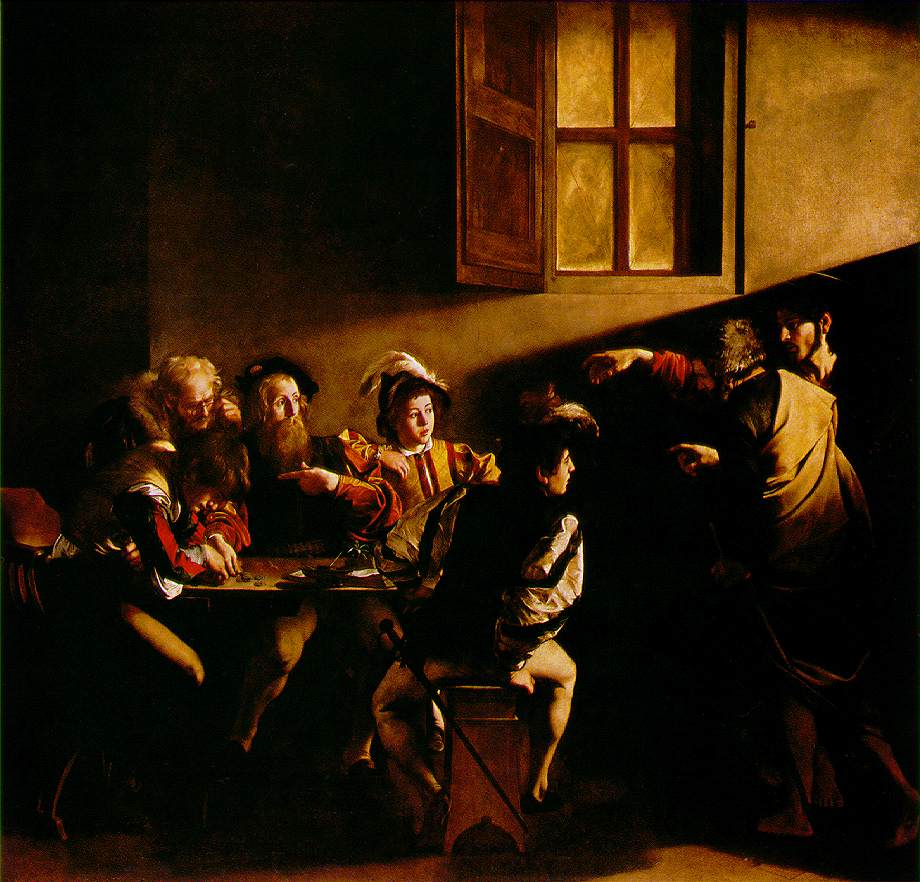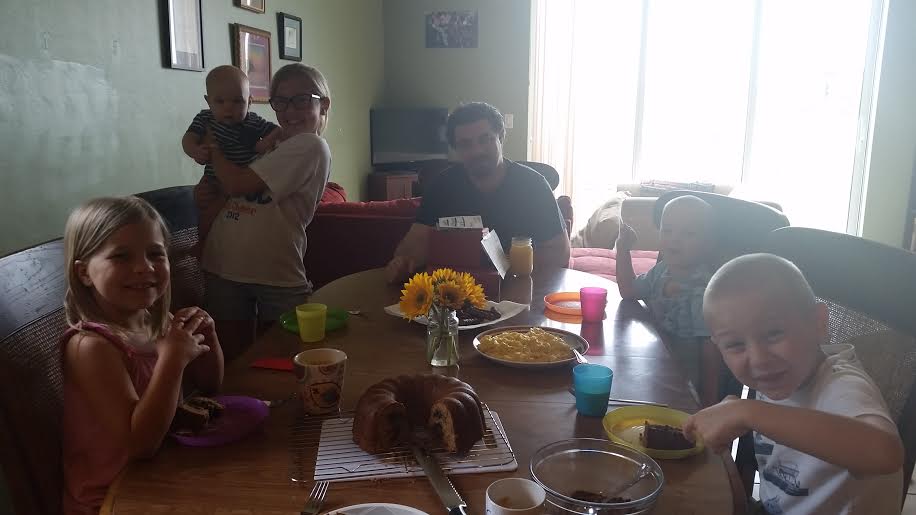
A few days ago Fr. Peter Daly wrote a heart-wrenching post at the National Catholic Reporter, concerning the lack of young adults attending Mass on a regular basis.
But even allowing for demographics, we have a problem. We wondered what we could do. So, in the spirit of Pope Francis, we decided to ask them, “Why don’t you come to church?”We announced a listening session to be facilitated by a doctor who is both a parishioner and the medical director of our local hospital. The forum was at a neutral setting, our parish theater. I hoped attendees could be comfortable talking frankly there.
By letter, we invited 500 young adults, all of whom have been confirmed in our parish in the last 25 years. We did not have good addresses for many, so we sent letters to their parents. We also put notices on our website and in the Sunday bulletin and sent out a blast of emails to every email address we had. We probably should have used Twitter and Instagram.
What happened?
Less than 10 percent of the 500 invited showed up.
The low attendance was discouraging. It told me that the church is irrelevant to their lives. They do not even care enough about church to come and tell us why they don’t want to come. For them, the church is a dead letter, not good news.
Of the roughly 40 young adults who did attend, about half were still going to church most Sundays. These were not the truly alienated. A few even sing in the choir.
We recorded the session. After a brief opening prayer, I just sat in silence and listened. It was discouraging, but not surprising. Even the young adults who are still going to church were alienated from Catholicism as an institution to some extent.
The No. 1 issue by far, which came up over and over again, was the Catholic church’s treatment of lesbians and gays. Everyone, conservative or liberal, disagreed with the church on that.
I really did find the entire article heart-breaking. Here is a priest who notices that young adults are MIA, but doesn’t know why, so he does the earth-shattering thing and tries to ask them. The goal, obviously, was to listen and learn, in whatever way possible.
That was made infinitely more difficult by the scanty response, which hit me like a punch in the gut. God only knows how it hit Fr. Daly, but I sense that writing about it must have taken quite a lot of fortitude. Even worse, though, was the overwhelming response from those who did attend. It basically boils down to, “as soon as the Church stops being the Church, I’ll come back to church.”
And therein lies the problem when you try to listen to the masses, so as to give them what they want — or even what they think they need.
There are so many things that contribute to the lack of young adults in parishes today. So many that it would be silly to try and make a list of problems X,Y, and Z that can be addressed to “solve” the young adult faith crisis. It’s utterly useless to point to the trifecta of gay marriage, birth control, and crap music as if those are the real problems, those are the real reasons why young adults don’t come to Mass. For every young adult who leaves the Church because we are too hard on gay marriage, there is one who joins the SSPX because we are too soft on it. For every young adult who leaves the Church because the teachings on birth control are “unrealistic”, there is one who joins a Quiverfull Church because NFP is a liberal heresy. For every young adult who wants “Sister Act”-style music, there’s one like me cries tears of blood when some well-meaning music director mutilates “In the Bleak Midwinter” by adding guitars and drums.
Some of this chaotic disparity is due to the very simple anthropological truth that “young adulthood” is a post-modern construct. In times past, there were no such thing as “young adults.” There were children, and there were adults. A child stopped being a child when it became an adult — there was no extended period of adolescence or young adulthood, when young men and women were expected to flounder around rootlessly and try to “find themselves.” They were kids, then they got married and had kids, or entered a trade, a religious vocation, or the military. Life was harder back then, with less leisure, less education, and less material comfort. Even if the young adults of the past grasped the ins and outs of Catholicism, they didn’t have Google to suss out inconsistencies and offer alternative worldviews. Neither did they have the time to think about the intricacies of religion, much less debate them with the parish pastor.
But that meant that in some ways, it was easier. Critical thinking and healthy suspicion of religion were not traits common to the majority of people; thus, when the Bible and the Catechism and your mother said, “you must go to Mass on Sunday or you will go to hell,” you damn well went to Mass on Sunday so you wouldn’t go to hell. You didn’t question the teachings or practices of the Church unless you were Jan Hus, and if you were Jan Hus, you got the shite burned out of you for it.
So, hooray, 2015! We no longer have to fear being burned at the stake for telling our priest how much we think it’s rubbish to sell indulgences. More, our priest invites us to tell him how firmly we reject fundamental truths of the Catholic faith.
It’s a little sad, but it’s way too late to put that genie back in the bottle. The lingering adolescence of the Western adult is here to stay, for a while at least. The pervasive influence of culture is equally impossible to dismiss as a quirk or a fad, particularly given the way that media has fundamentally altered the education of the populace. But besides all that, for a culture that is essentially built upon the ruins of Christendom, we have internalized the two greatest commandments in a breathtaking way.
Sure, we might not love the LORD our GOD with all our hearts, minds, and souls, but we certainly love the lord our god with all our hearts, minds, and souls…whatever strange godthat might be. As far as loving our neighbor as ourselves, I maintain (completely unironically) that the great majority of young adults really, honestly attempt to do that, insofar as we are capable.
This leaves today’s young adults in a strange and unprecedented position. Essentially, millennials have been subsumed into the spirit of Christianity, yet are bereft of its substance. It’s almost the reverse of what the first Christians faced in pagan Rome — Rome, after all, had drunk deeply at the well of ancient Greek culture. Virtue was not a foreign concept, nor rightly ordered desires, however they might have been practically neglected. What converted the Romans was the spirit of Christianity, not the substance.
“Look,” they say, “how they love one another” (for they themselves hate one another); “and how they are ready to die for each other” (for they themselves are readier to kill each other).
-Tertullian, Apologeticum
What the young adults said to Fr. Daly was basically the inverse of what was said of the earliest Christians. “Look,” they said, “see how we love one another”. Fr. Daly recognized that himself.
They have good hearts and good instincts. They want to respond to people with compassion and hospitality. They want what Jesus would want, that we live the law of love. They desire that all should be one in Christ.
What they don’t understand is that being one in Christ costs something. Loving someone else costs something. Being nice and making everyone comfortable is easy — anyone can do that. Truly loving another human being is something else entirely. It’s uncomfortable and painful and confusing, and Christ asks us to do it anyway.
What most of the world has forgotten is that love is a cross. And the absolute, only way we will bring them back to Church, back to Christ, is not by explaining that. Even if we set the text of the Summa to the Sister Act soundtrack, it will neither pique their interest nor teach them something. We need to give them exactly what they asked for — just not in they way they asked.
Millennials believe that Catholics don’t practice what we preach about love. In some ways, they’re right. A significant portion of the Church responds to LGBT people with what could be described as, “ewwww, yucky.” Sure, we might try to get the language right to cover our bases — you know, the old “hate the sin, love the sinner” or “you’re a child of God, not a sexual orientation” — and I actually think that most of us mean it. Still, it doesn’t change the fact that we’d all (yes, me included) look at least twice if two gay men sat next to us in Mass, holding hands. Ditto for lesbians. Ditto for two effeminate men who aren’t making any kind of contact. I mean, God knows that I still have to mentally slap myself every time a family with only one or two kids sits in front of me, just to keep my lesser self from forming reprehensibly uncharitable assumptions about their child-spacing methods. So yeah. These young adults aren’t too far off the mark in one respect.
In another, though, they’re way off-base. Of course everyone can’t be welcomed to the Eucharist, because it’s a super bad mortal sin to receive Christ in a state of mortal sin. Denying communion to non-Catholics and those in a state of mortal sin is not hostile, it’s actually a work of mercy. An act of love. Which is why it’s so hard and painful to do, especially for a priest, whose entire life’s work is to bring Christ to the people.
There are, however, other ways to bring Christ to the people, and these are the ways in which we — again, me included — suck spectacularly. They’re also the ways that Christ brought himself to the people — He went to them.
He didn’t wait for them to come back to the temple, or to come for the the first time. He didn’t try to reach everyone, everywhere. He just walked over to the wrong side of the tracks and sat down and ate dinner with a few people. With a few prostitutes. I’m guessing it couldn’t have been that comfortable or easy for Christ, being sinless and God and all, to go into dens of literal iniquity and have dinner. He did it anyway — for the sake of those few souls.
It’s the job of the shepherds to find the sheep, to meet them where they are, so that’s what we should do. We should literally meet them where they are. If the missionaries of the modern Church — the priests and laypeople — really want to bring young adults back to the Church, the only way to attempt that is to go find a few instead of waiting for all of them to come back. That means doing uncomfortable things, like hanging out in bars in a clerical collar, or talking to the two mommies of the girl our kids are playing with at the local hipster playground. It means going out to serve those less fortunate — not materially, but spiritually. It means being willing to risk ourselves in a gamble friendship with someone who doesn’t agree with the Church’s teachings — not to show them that the teachings are true, but to show them that this is love, and it’s real. It means not being ruled by fear, not holing up in church groups and echo chambers in a desperate attempt to keep the outside world outside. It means giving, not preserving. Risking our talents — and with them, ourselves — rather than burying them. It’s frightening, dangerous work, and it’s exactly what Christ asked us to do.
All that is not to say that this will quickly result in a thriving young adult presence in all parishes, everywhere. At best, maybe one or two young adults will come back to Mass, and maybe just sporadically. That’s enough, though, because those souls matter. It’s the long game we’re playing, focusing on the person in front of us, one at a time, because that’s how conversion happens. That’s how mine happened. That’s how lives are sanctified…one step at a time.
In the end, the truth is that there’s only so much we can do to bring young adults back to the Church. The Church has always, in every age, stood in contradiction to the culture. It cannot do anything else. If the Church folds and gives the masses what they want now, it won’t be capable of giving the individual person what he or she needs later. There will come a time when the heady euphoria of a culture high on relativism will crash, and the Church must be there to pick up the pieces. Same as ever.










